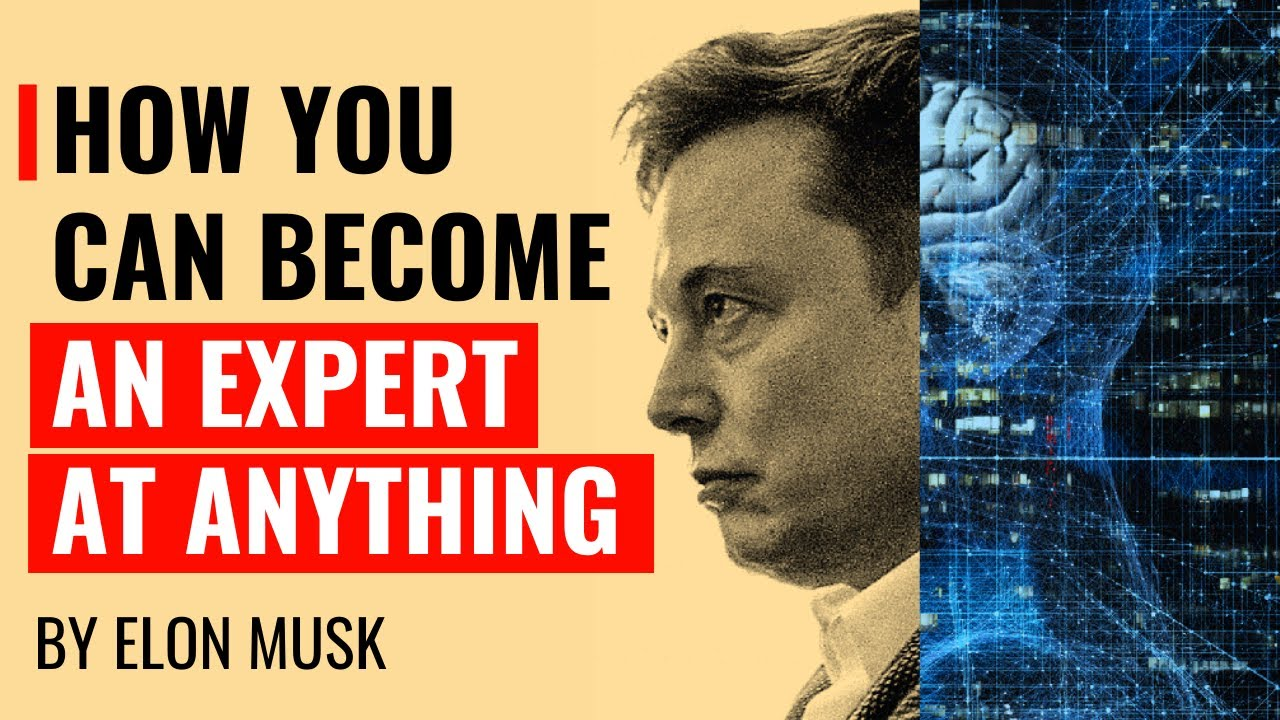The video explores the concept of first principles thinking, as articulated by Elon Musk, which is a technique used extensively in physics. Unlike traditional Reasoning by analogy, first principles thinking involves breaking down complex problems into their most basic elements and using this understanding to innovate from the ground up. This method encourages examining the core facts of a problem, thereby fostering creative and effective solutions.
Elon Musk gives practical examples of how first principles thinking can be applied to real-world scenarios, such as reducing the cost of battery packs and launching rockets. By analyzing the Fundamental components of a product and their costs, one can challenge conventional assumptions and discover more cost-effective ways to innovate. Musk emphasizes the importance of questioning existing paradigms and discovering discrepancies between material costs and final product pricing as seen in his work with batteries and rockets.
Main takeaways from the video:
Please remember to turn on the CC button to view the subtitles.
Key Vocabularies and Common Phrases:
1. Framework [ˈfreɪmˌwɜrk] - (n.) - A structure for organizing and supporting arguments or ideas.
I do think there's a good Framework for thinking is physics.
2. Fundamental [ˌfʌndəˈmɛntl] - (adj.) - Relating to the basic structure or underlying principles of something.
Boil things down to their Fundamental truths and reason up from there.
3. Reasoning [ˈrizənɪŋ] - (n.) - The action of thinking about something in a logical, sensible way.
Through most of our life, we get through life by Reasoning by analogy.
4. Constituent [kənˈstɪtʃuənt] - (n.) - A component part or ingredient of something.
What are the material constituents of the batteries?
5. Deterministic [dɪˌtɜrməˈnɪstɪk] - (adj.) - Relating to the philosophical belief that all events are caused by preceding events.
Outcomes are usually not Deterministic.
6. Probability [probəˈbɪləti] - (n.) - A measure or estimation of likelihood of an event occurring.
Outcomes are not Deterministic, they're a range of probabilities.
7. Paradigm [ˈpærədaɪm] - (n.) - A model or pattern for something that may be copied.
Questioning existing paradigms and discovering discrepancies between material costs and final product pricing.
8. Axioms [ˈæksiəmz] - (n.) - A statement or proposition which is regarded as being established, accepted, or self-evidently true.
Examining whether you have the correct Axioms or the most applicable Axioms.
9. Discrepancy [dɪˈskrepənsi] - (n.) - An inconsistency or difference between facts or claims.
There must be something wrong in going from the Constituent atoms to the final shape; and I found that certainly to be true.
10. Probabilistic [ˌprɒbəˈbɪlɪstɪk] - (adj.) - Involving or expressed in terms of Probability.
Understanding the range can improve strategic planning.
First Principles Thinking: Revolutionizing Innovation and Design
I do think there's a good Framework for thinking is physics. You know, the sort of first principles Reasoning. What I mean by that is boil things down to their Fundamental truths and reason up from there, as opposed to Reasoning by analogy. Through most of our life, we get through life by Reasoning by analogy, which essentially means kind of coughing what other people do with slight variations. And you have to do that. Otherwise, mentally, you wouldn't be able to get through the day. But when you want to do something new, you have to apply the physics approach.
Give me an example of that. What's one thing that you've done that on that you feels worked for you? Sure. So somebody could say, in fact, people do that battery packs are really expensive, and that's just the way they'll always be, because that's the way they've been in the past. You're like, well, no, that's pretty dumb. And you say, no, okay, what are the batteries made of? So, first principles would be to say, okay, what are the material constituents of the batteries? What is the spot market value of the material constituents? So you can say, okay, it's got cobalt, nickel, aluminum, carbon, and some polymers for separation. And a steel can. So break that down on a material basis and say, okay, if we bought that on the London Metal Exchange, what would each of those things cost? Like? Oh, geez, it's like $80 per kilowatt hour. So clearly, you just need to think of clever ways to take those materials and combine them into the shape of a battery cell. And you can have batteries that are much, much cheaper than anyone realizes.
Rockets were super expensive, and the cost per pound or kilogram to orbit had actually gone up over the years, not down. So after my second or third trip back from Russia, I was like, whoa, there's got to be a way to build rockets. There's got to be a way to solve this rocket problem. I started reading a lot of books on rockets and did sort of a first principles analysis of a rocket. Just broke down the materials that are in a rocket. What would it cost to buy those materials? What versus the price of the rocket? And there's a gigantic difference between the raw material cost of the rocket and the finished cost of the rocket. So there must be something wrong happening in going from the Constituent atoms to the final shape. And I found that certainly to be true.
And then, just in general, critical thinking is good. Examining whether you have the correct Axioms are the most applicable Axioms. Does the logic necessarily connect? And then what are the range of probable outcomes? Outcomes are usually not Deterministic. They're a range. And so you want to figure out what those probabilities are and make sure, ideally, that you are the house. You know, it's fine to take, it's fine to gamble as long as you're the house.
Physics, Innovation, Technology, Critical Thinking, Elon Musk, Problem Solving

